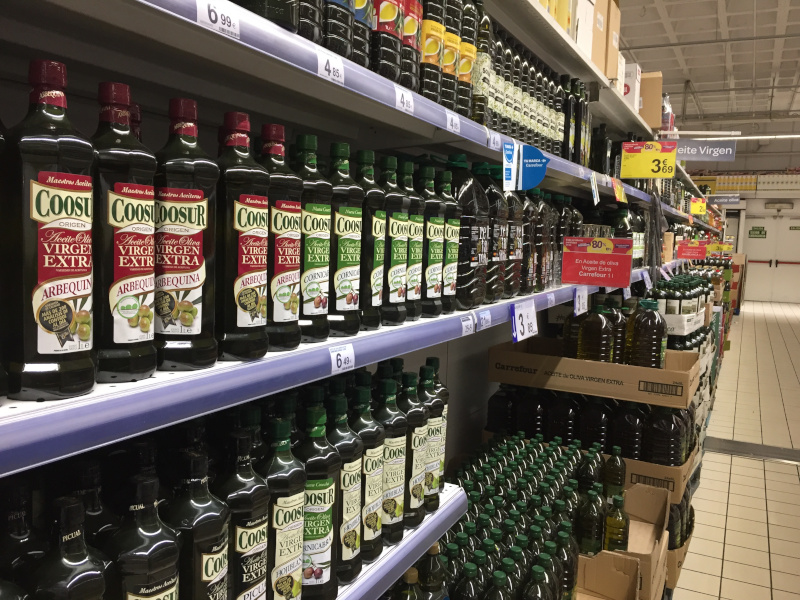Prices for extra virgin olive oil of superior quality are currently breaking all records.
In Spain, the ‘liquid gold’ is costing six euros per kilo at source, an increase of 40% compared to last year and a price double that recorded at the end of 2019. This increase is due to this year's extraordinarily low harvest – down by about 50% on average – the extreme drought in recent months in the Iberian Peninsula and the impact on prices of higher producer costs due to inflation.
While market supplies do not seem to be threatened for the time being, consumption will indeed suffer from the decline in the volume of products on the market.
“The market regulates itself and, obviously, if there is less oil, prices will rise accordingly," Antonio Luque, president of the Dcoop cooperative in Antequera, Malaga, the world's largest producer of extra virgin olive oil, told Le Soir. Luque predicts that the rise in prices will continue, in a controlled manner, at least for the next four to five months, and that its evolution will depend mainly on the climate. "At least 600 litres of rain would have to fall in the production areas to be able to hope for a good harvest next year and thus normalise markets," he said.
Olive oil production in Spain will increase from 1.5 million tons last season to 800,000 this year. "Last year, about 140,000 tons of olive oil were sold every month, on the domestic and export markets, while this year this figure will not exceed 90,000 tons. Consumption will therefore be affected in similar proportions, namely about 30%," Luque said.
In addition to opening a national debate on water resources, Luque calls for finding mechanisms that would allow olive oil to be stored during periods of abundant production in anticipation of crop failures like this year's, "which would avoid current market distortions."
Small producers blame the industry for the price increase. "The distribution industry must reduce its margin of control to curb these differences and not contribute to higher costs that would reduce consumer confidence in oils,” said Cristóbal Cano, head of the olive sector of the Spanish union of small farmers.
“The season is going to be difficult, and it must be for everyone." He revealed that olive growers have been selling below the break-even point, set at 2.70 euros per kilo, for years. According to him, it is very likely that the rise in prices will continue in the coming months: "In 2023, olive oil consumption will decrease all over the world because there will be far fewer products on the market."
For its part, the industry rejects accusations of speculation. "Source prices should not have risen by almost 50% since last October, when the impact of the drought had not yet been felt; we waited much longer to pass on the costs," Rafal Pico, president of Asoliva, the Spanish association of olive oil industry and exporters, told Le Soir.
When the war in Ukraine broke out, the rising price of sunflower oil caused many consumers to turn to olive oil. "Consumption will fall again when the situation returns to normal," warned Pico, who believes that the rise in olive oil prices is attributable to the effects of Spain's food chain law, which allows producers to raise their prices to a level above production costs.
Meanwhile, the launch of the olive harvest season is confirming everyone’s worst fears, with production even lower than that envisaged in the assessment of the Council of Andalusia, which forecast 587,000 tons of oil harvested in Andalusia, 49.1% less than in the previous harvest and 47.5% less than the average of the last five seasons.
"Olive growers are facing a real disaster," according to Francisco Elvira, head of technical services at the coordinating body of agricultural organisations in Jaén. In this province, the world leader in oil production, an average decrease of 60% is expected compared to the previous year. It is even doubtful that it will exceed the worst harvest recorded to date in the twenty-first century, during the 2012-2013 season, when only 142,849 tons of oil were obtained. The situation is so serious that urgent aid for olive growers has been requested.

